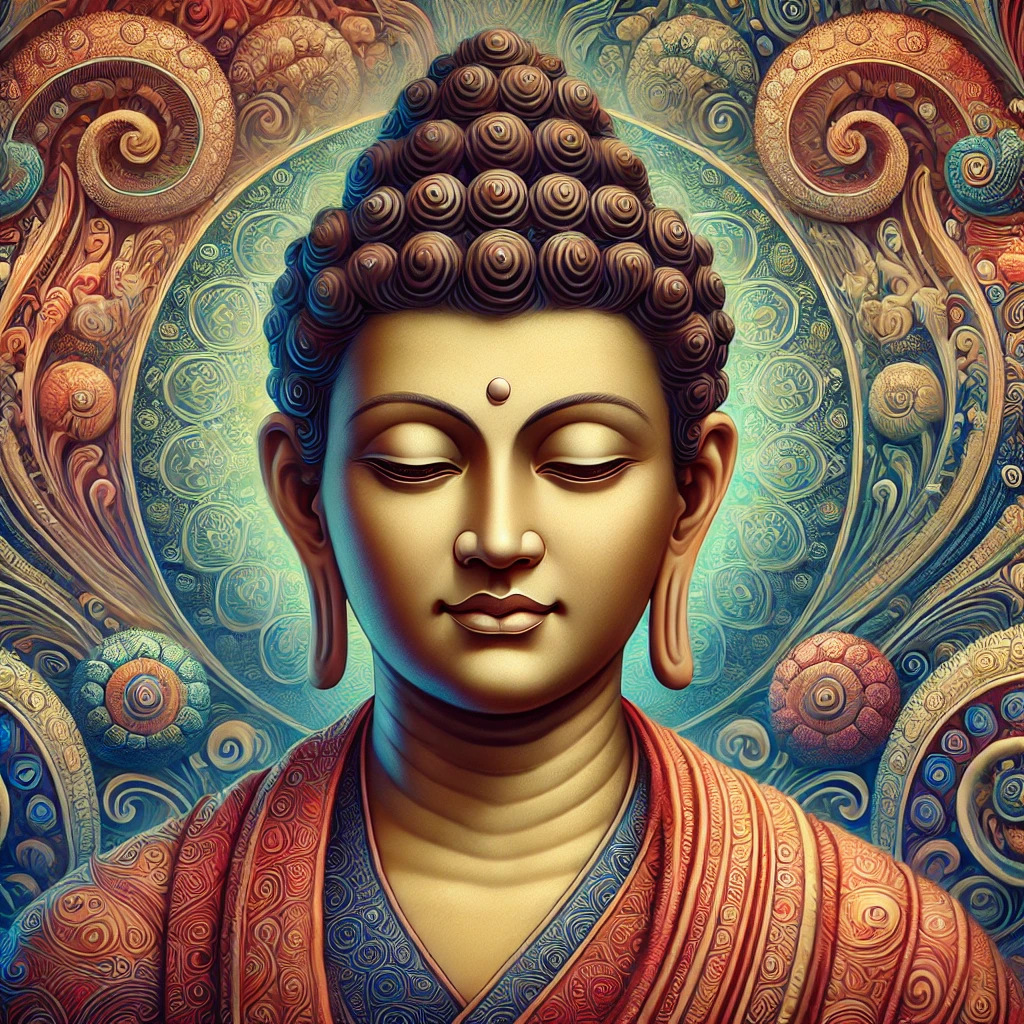Siddhartha Gautama (Buddha)

Birth Date: circa 563 BC
Death Date: circa 483 BC
Place of Birth: Lumbini, Nepal
Place of Death: Kushinagar, India
Century: 6th-5th BC
Region: Ancient India
"Peace comes from within. Do not seek it without."
Siddhartha Gautama's teachings emerged in response to the rigid caste system and the spiritual doctrines that dominated ancient India. Influenced by the Vedic traditions and the ascetic practices of his time, he sought a path that emphasized compassion, mindfulness, and the cessation of suffering. His enlightenment and subsequent teachings reflect the cultural and spiritual contexts of his era, offering a middle path between indulgence and severe asceticism.
Buddha taught that life is full of challenges, but we can overcome them by understanding ourselves better, living ethically, and practicing mindfulness. His ideas guide people on a path to find inner peace and happiness.
Dhammapada: A collection of sayings of the Buddha in verse form, reflecting his teachings on ethics, meditation, and wisdom. The Dhammapada is one of the most widely read and studied texts in the Buddhist tradition.
Siddhartha Gautama, known as the Buddha, was influenced by the spiritual traditions of ancient India, including Hinduism and the ascetic practices of the Sramana movement. His quest for enlightenment was shaped by the teachings of these traditions, particularly the concepts of karma, rebirth, and the pursuit of spiritual liberation (moksha). However, Buddha’s philosophy diverged significantly, leading to the development of the Middle Way, which advocates for a balanced approach to life, avoiding both extreme asceticism and indulgence.
The Buddha’s teachings have laid the foundation for Buddhism, a spiritual tradition that continues to thrive across the globe. His concepts of the Four Noble Truths and the Eightfold Path have influenced various schools of Buddhist thought, including Zen Buddhism, which has gained popularity in the West. Modern mindfulness practices, which are rooted in Buddhist meditation techniques, have been integrated into Western psychology and are widely used for stress reduction, mental health, and wellness. Influential figures such as the Dalai Lama and Thich Nhat Hanh have carried forward the Buddha’s teachings, promoting peace, compassion, and mindfulness in today’s world.
Siddhartha Gautama, the Buddha, is revered for his teachings on suffering, impermanence, and the path to enlightenment, but his ideas have also sparked debates. One of the most challenging concepts is 'anatta' or 'no-self,' which suggests that there is no permanent, unchanging self. This idea has led to different interpretations across Buddhist traditions, with some critics arguing it could lead to nihilism, where life seems to have no inherent meaning. The Buddha's rejection of the caste system and traditional rituals was revolutionary, but it also faced resistance from the Brahmin class, who felt their authority was threatened. As Buddhism spread, differences in practice and belief emerged, especially between Theravada and Mahayana traditions, leading to debates about the true essence of the Buddha’s teachings. In recent times, the adaptation of Buddhism in the West has raised questions about whether these new forms stay true to the original teachings.
Shankara: Criticized the Buddha’s concept of no-self, arguing that it leads to nihilism. Nagarjuna: While a follower, he debated the interpretation of the Buddha’s teachings on emptiness and reality. Confucius: Although not a direct critic, Confucius’s teachings focused on social order, contrasting with the Buddha’s emphasis on personal enlightenment.
The Buddha’s teachings on the Four Noble Truths and the nature of suffering have a lasting influence on both Eastern and Western philosophies. His insights into the impermanence of life and the path to enlightenment continue to inform contemporary discussions on mindfulness and ethics.
After years of extreme ascetic practices, Siddhartha Gautama realized that self-denial was not the path to enlightenment. One day, while sitting under a Bodhi tree, he vowed not to rise until he found the truth. It is said that during this time, he was tempted by Mara, the god of desire, who tried to break his resolve by sending visions of beautiful women, violent storms, and even demons. Siddhartha remained steadfast, and by morning, he attained enlightenment, becoming the Buddha. This story highlights the importance of balance and inner strength in his teachings.




